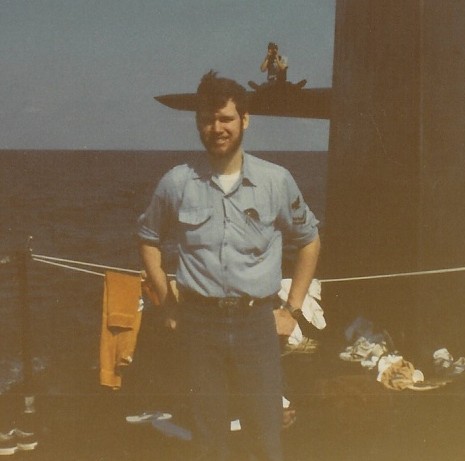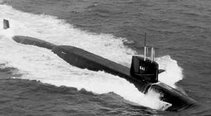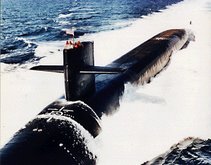From the Boston Globe Doctor's call-up by Army is Halted
The US Army paid $184,000 for Mary Hanna to go to Tufts University School of Medicine for four years, and in exchange she agreed to serve four years of active duty and another four in the reserve after becoming a doctor.
But just before Christmas, as she was nearing the end of her anesthesiology residency at Beth Israel Deaconess Medical Center in Boston, Hanna, 30, of Somerville notified the Army that her religious beliefs were now ``incompatible with military service."
Mary says she rediscovered her religion as a devout Coptic Orthodox Christian and "cannot participate in war in any form.". She is asking to be discharged as a conscientious objector. But the Army is not sending her to Iraq orOf course the Army Reserve Captain and her lawyer say she's willing to pay back the $184,000 government investment in her education. Not that a qualified anesthesiologist in the Boston healthcare market would have much trouble with paying that back in a couple of years.
What I don't understand is how a doctor who took a Hippocratic oath and knew that joining the Army would mean treating injured soldiers in wartime could all of a sudden find both in opposision to her faith at the very moment she get orders to report for duty. Timing seems odd to me.
I think that Ms Hanna needs to take a lesson from the life of another conscientious objector, Desmond Doss, WWII U.S Army Medic and Congressional Metal of Honor recipcient.
Citation: Private First Class, U.S. Army, Medical Detachment, 307th Infantry, 77th Infantry Division. He was a company aid man when the lst Battalion assaulted a jagged escarpment 400 feet high. As our troops gained the summit, a heavy concentration of artillery, mortar and machinegun fire crashed into them, inflicting approximately 75 casualties and driving the others back. Pfc. Doss refused to seek cover and remained in the fire-swept area with the many stricken, carrying them 1 by 1 to the edge of the escarpment and there lowering them on a rope-supported litter down the face of a cliff to friendly hands. On 2 May, he exposed himself to heavy rifle and mortar fire in rescuing a wounded man 200 yards forward of the lines on the same escarpment; and 2 days later he treated 4 men who had been cut down while assaulting a strongly defended cave, advancing through a shower of grenades to within 8 yards of enemy forces in a cave's mouth, where he dressed his comrades' wounds before making 4 separate trips under fire to evacuate them to safety. On 5 May, he unhesitatingly braved enemy shelling and small arms fire to assist an artillery officer. He applied bandages, moved his patient to a spot that offered protection from small arms fire and, while artillery and mortar shells fell close by, painstakingly administered plasma. Later that day, when an American was severely wounded by fire from a cave, Pfc. Doss crawled to him where he had fallen 25 feet from the enemy position, rendered aid, and carried him 100 yards to safety while continually exposed to enemy fire. On 21 May, in a night attack on high ground near Shuri, he remained in exposed territory while the rest of his company took cover, fearlessly risking the chance that he would be mistaken for an infiltrating Japanese and giving aid to the injured until he was himself seriously wounded in the legs by the explosion of a grenade. Rather than call another aid man from cover, he cared for his own injuries and waited 5 hours before litter bearers reached him and started carrying him to cover. The trio was caught in an enemy tank attack and Pfc. Doss, seeing a more critically wounded man nearby, crawled off the litter; and directed the bearers to give their first attention to the other man. Awaiting the litter bearers' return, he was again struck, this time suffering a compound fracture of 1 arm. With magnificent fortitude he bound a rifle stock to his shattered arm as a splint and then crawled 300 yards over rough terrain to the aid station. Through his outstanding bravery and unflinching determination in the face of desperately dangerous conditions Pfc. Doss saved the lives of many soldiers. His name became a symbol throughout the 77th Infantry Division for outstanding gallantry far above and beyond the call of duty.
Desmond Doss was a devout member of the Seventh-Day Adventist Church and refused to kill or carry a gun. Mr. Doss died earlier this year
Read War Hero Without a Gun to understand the true meaning of a conscientious objector and how religious beliefs can be compatible with military service.
Ms Hanna put whatever political beliefs you have aside and look to your faith and medical oath to fill your obligations. In refusing to serve you are waging war against those who protect your freedom to be a conscientious objector.









3 comments:
I believe you are overlooking the fact that the military itself has legislated an exception for military personnel who have a change of heart. The law has anticipated that someone who enlists in military service may come to a moral belief that all war is wrong.
This is written into military law, that someone who is sincerely opposed to all forms of war on a moral basis cannot be forced to participate in war. Therefore, the implication that because she is a conscientous objector, she is trying to get out of an obligation, is faulty because it is based on an assumption that her belief system is insincere. That is not a decision that you, blogger, can make being as you have no personal knowledge of Mary Hanna or her belief systems.
I have no connection with the army whatsoever, but my own belief system has changed radically in the last year. Although initially a supporter of our military involvement throughout the world, I have come to the belief that humanity has evolved past war and has other means - namely economic sanctions and use of political allies - that it is possible to achieve desired ends without the need for war. Because I firmly believe that, I feel that any war involvement is a sin because it is unnecessary death and destruction. If such a change of heart is possible for someone outside of the military, why is not possible for someone who has had 8 years of medical school and residency to contemplate the implications and repurcussions of war as well as her involvement therein?
Why is it so difficult to accept that an intelligent person might contemplate the death and devastation of war as well as her religious beliefs and find moral dilemma with her participation?
You point out that it would be easy for a physician to pay back the $184,000 owed to the army - if that is so, why would she have had any hesitation about taking out student loans, also to be repaid once she was a practicing physician????
Aside from which, research about Fort Bliss reveals it is a deployment preparation center. To believe that this objector would not be sent to Iraq or Afghanistan is naive and in contradiction to all the literature about Fort Bliss.
It is not relevant that other people have chosed to participate in wars in non-violent capacities. The legislature has drafted this provision because our country is founded on principles of freedom and if we became a country who forced people who became opposed to war to participate in war, whether on the battlefront or otherwise, we would be no better than the countries we seek to "democratize". Where is the democracy when we force people to do things they do not believe in? It is my contention that this country is not playing fair with any of its citizens who have applied and not received conscientous objector status?
And who are we to judge someone's internal belief system? If the military has given her the right to object to war and she has done so, it is for the judge and not you to determine her motives and sincerity.
Anonymous,
I didn’t overlook the fact that military allows for the conscientious objector status. In fact there are two separate levels of conscientious objector; the more commonly know one requires a discharge from the military. The second classifies the individual as a conscientious objector noncombatant. This noncombatant conscientious objector status would still allow Ms Hanna to fill her military obligations without direct participation in war, an easy fit for a doctor.
You are right anonymous in pointing out that without knowing Mary Hanna I do not know her true motivations; indeed I would suspect neither do you. I would argue that only Mary really knows her true motivations, but the military has an obligation to try to determine this and has procedures to do so. I only implied that based on the facts stated in the Boston globe article she may not have been as sincere as she seems. I never said I knew she was faking. From the article
“Army review board voted 2-1 to reject Hanna's discharge, and the board's president wrote that her statements ``lack passion and sincerity" and ``appear as repetitions rather than personally held beliefs."
“She was one of two anesthesiologists who filed conscientious objector applications in December, shortly after another anesthesiologist was granted a discharge on the same grounds.”
“The Army ``can guarantee she will not be deployed to Iraq or Afghanistan or any other combat situation."
All this when she is finishing her education and residency and required to fill her obligation? My difficulty is not with whether an intelligent person might find a moral dilemma with participation in war and religious beliefs, only her timing and total rejection of her military obligation.
As far as student loans go the last I checked the US military is not Sallie Mae.
Fort Bliss may be a deployment preparation center but not all who are stationed there go to war. Again from the Boston Globe article:
“Hanna was assigned to Beaumont Army Medical Center, a major teaching hospital and regional trauma center at Fort Bliss, Texas, that treats military members, their families, and retirees.”
I’m not denying she has a right to pursue a conscientious objector status and refuse to participate in war. But, I do wish she would reconsider her total rejection of her military obligations and continue as the conscientious objector noncombatant doctor.
Your blog is very nice !
Recently, while searching for some information about college programs, I came accross to your blog, I would like to leave my first comment. But, I don't know what to say except that I have enjoyed reading. I will keep visiting this blog very often to get good information about different college programs.
Thanks
:)
Canadian college
Post a Comment